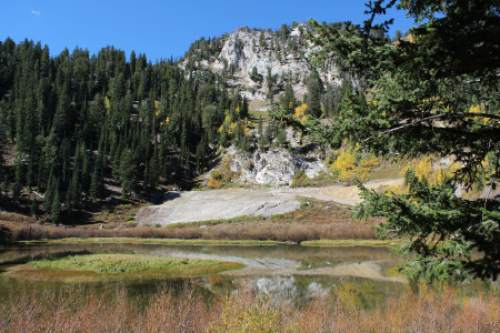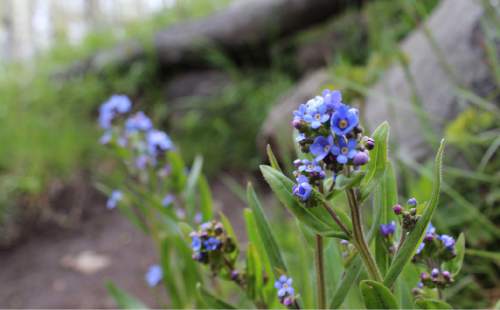This is an archived article that was published on sltrib.com in 2016, and information in the article may be outdated. It is provided only for personal research purposes and may not be reprinted.
Yes, it is more than a little frustrating that, for all the taxes most of us pay, we can't continue to receive in return a benefit as simple as a free walk among the beautiful hills that all of us, as citizens of the United States, own in common.
One less jet fighter. Fewer grandstanding congressional investigations. Tax rates for the wealthy no higher than those paid during the Reagan administration. It wouldn't take much in the way of realigned priorities to allow the U.S. Forest Service to continue to allow folks to hike along the more popular trails in the Big and Little Cottonwood canyons for free.
But Congress is unlikely to make a more humane and reasonable priority list for the federal budget any time soon. And there are logical and ethical justifications for government collecting more — not all, but more — of the costs of certain public amenities from those who actually use them.
That's why the Forest Service is floating the idea of charging a $6-per-vehicle fee. So the maybe 6 million people a year who stroll through the main canyon trails will be the ones who help pay for them.
And there are things that need to be paid for. As natural and unmolested as we might like our nature walks to be, human enjoyment of the landscape requires such things as trailheads, with restrooms, parking lots, signs, groomed trails and, should it come to that, rangers and sheriff's deputies to come looking for us when we get lost or injured.
There is also the concern, hardly unique to Forest Service trails, of our public lands being loved to death. On lovely summer weekends, traffic in the canyons is heavy, parking lots full and human presence not so unlike the urban landscape many of us might be trying to get away from. A fee, even a small one, might cut down on that peak traffic by a perceptible amount, and so would be worth it.
At the same time, the land belongs to all of us, regardless of income. Even the smallest charge can be a barrier to the folks who may be in the most urgent need of the temporary cleansing of an afternoon in the great outdoors. Some workarounds — free passes given away in schools, perhaps, or for off-peak days — should be offered.
Plans also include finding ways to thin auto traffic by offering more public transit options, basically a year-round version of UTA's popular ski bus service.
The Forest Service is taking public comment on the proposal through Sept. 9. The fees would start in June of 2017.
If Congress won't give us our money's worth — and it won't — then it is indeed time to put a toll gate on the trails.





